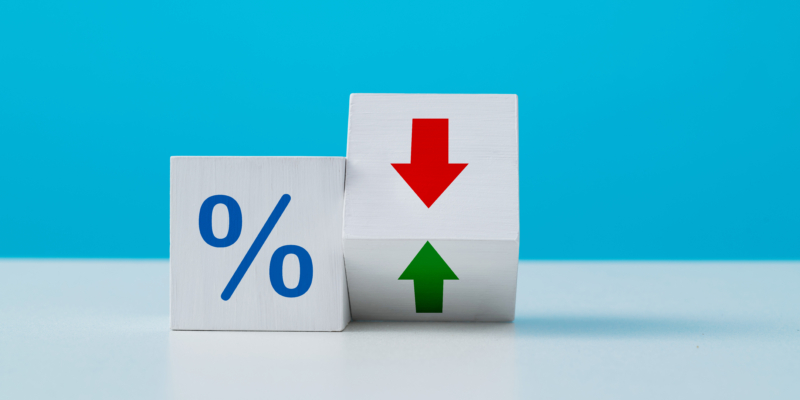Practical Tips for Paying Your Mortgage Off Early
Ever wonder what it would be like to own your house free and clear? No mortgage loan. No monthly house payments to a lender. To use the money that’s earmarked for the monthly mortgage payments and put it toward college tuition for the kids, retirement savings or even that European vacation you’ve been dreaming about?
If this describes you, stop dreaming. There are ways to pay off your mortgage faster! And paying off your mortgage can have benefits for you, such as freeing up monthly cash flow which was previously earmarked for the mortgage payment or avoiding the accrual of additional interest which can result in financial savings for you. Consider the following techniques, or a combination of them, to help you decide if paying off your mortgage early is the right decision for you.
- Refinance to a better rate or a shorter term (or both!)
- Apply extra funds to the mortgage balance
- Make an additional principal payment annually
- Pay more each month
There are benefits to each approach, so you’ll need to think through each one carefully and consider how they will fit into your personal financial situation, financial goals and financial future.
Let’s examine these four approaches to paying off your mortgage early
1. Shorten your mortgage term
Consider shortening your mortgage term by refinancing from a 30-year to a 15 or 20-year term, potentially benefiting from lower interest rates. Historically low rates in 2020-21 make this a strategic move to accelerate debt repayment by reducing total interest costs. However, assess your household budget thoroughly, factoring in upfront refinance costs and higher monthly payments that come with a shorter amortization period. Even with a lower rate, transitioning to a shorter term may increase your monthly mortgage payment. This option is ideal if your income has significantly risen since obtaining your original mortgage, enabling you to comfortably manage higher monthly payments. Use our home refinance calculator to estimate your new payment structure and total loan expenses with a refinanced term.
2. Put extra funds toward your mortgage
Let’s say you inherit some money, earn an annual bonus, or come into an unexpected windfall? It will take discipline but use a large portion or all of these proceeds to make an additional payment toward your principal balance. Are there annual sums of money you can usually count on? (Hello, tax refund!) Using these one-time sources of income to pay a large sum towards your mortgage loan may not affect your monthly budget and will help reduce your repayment term, perhaps by several years, and cut the total interest owed on the life of the loan.
3. Make an extra payment every year
We’re all used to making 12 mortgage payments per year, but what if you make it a baker’s dozen? If you can put an income tax refund, commission check or bonus towards an extra monthly payment, then you can make 13 total payments for the year. And for some people, an easier approach might be to see if your lender offers an automatic flexible drafting program. For instance, at AmeriSave, we offer a program known as FLEX that allows borrowers to make two semi-monthly half payments each month in place of one full payment. This program provides borrowers not only with added convenience but also could save them money over the life of the loan.
4. Pay more each month
Instead of waiting until the end of the year to make an extra payment, you can pay more toward principal each month. This option is ideal for those who can’t swing a full additional payment each year but still want to chip away at the mortgage because, well, every little bit helps. Use any extra money you have to round up your regular payment each month or by adding an extra $50 or $100 to it. Or maybe you can cut back on buying your morning cup of joe or eating out less and then put the proceeds toward your mortgage. Anything extra you can put toward your mortgage is helpful if you are motivated to pay off your mortgage early. Again, direct your servicer to apply extra payments towards the principal balance.
Before diving into paying off your mortgage early, consider these key questions:
-
- Does my loan have a prepayment penalty? (Consult your lender if unsure.)
- Can I make extra payments anytime, and how do I ensure these are applied to the principal? (Again, discuss with your lender.)
- Where am I in the loan term? Paying down principal early reduces interest over the loan’s life. Early in a fixed-rate loan term, more of each payment goes toward principal rather than interest.
- How long will I stay in this home? If moving soon, refinancing might not be ideal due to costs and resetting amortization schedules.
- Can I increase mortgage payments without affecting our financial security, including our emergency fund?
- Is it better to invest extra money now or pay off my mortgage early to redirect funds later?
- Will paying off my mortgage early impact my mortgage interest tax deduction?
- Should I seek advice from a financial advisor and lender? (Yes!) Collaborate to analyze your loan and understand the benefits of aggressive mortgage payments.
AmeriSave supports borrowers through every mortgage stage, including those aiming to shorten their mortgage duration. Discuss your financial objectives with us to align your plans with expert guidance.
Note: AmeriSave Mortgage Corporation and its affiliates do not provide tax or financial advice. This information is for informational purposes only. Consult your tax or financial advisors for advice tailored to your situation.

 AmeriSave Mortgage Corporation
AmeriSave Mortgage Corporation AmeriSave Mortgage
AmeriSave Mortgage AmeriSave Mortgage
AmeriSave Mortgage AmeriSave Mortgage Corporation
AmeriSave Mortgage Corporation AmeriSave Mortgage
AmeriSave Mortgage AmeriSave Mortgage
AmeriSave Mortgage AmeriSave Mortgage
AmeriSave Mortgage